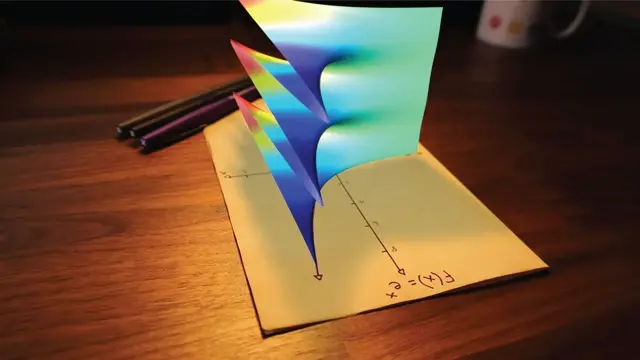2024-08-12
[public] 62.5K views, 42.6K likes, dislikes audio only
Welch Labs Imaginary Numbers Book!
https://www.welchlabs.com/resources/imaginary-numbers-book
Book Digital Version
https://www.welchlabs.com/resources/imaginary-numbers-are-real-book-digital-download
Euler’s Formula Poster!
https://www.welchlabs.com/resources/eulers-formula-poster-13x19
Poster Digital Version
https://www.welchlabs.com/resources/eulers-formula-dark-mode-poster-digital-download
Special thanks to the Patrons:
Juan Benet, Ross Hanson, Yan Babitski, AJ Englehardt, Alvin Khaled, Eduardo Barraza, Hitoshi Yamauchi, Jaewon Jung, Mrgoodlight, Shinichi Hayashi, Sid Sarasvati, Dominic Beaumont, Shannon Prater, Ubiquity Ventures, Matias Forti
Tattoo by @themutemaker - thank you! Check out her awesome work here:
https://www.instagram.com/themutemaker
Welch Labs
Ad free videos and exclusive perks: https://www.patreon.com/welchlabs
Watch on TikTok: https://www.tiktok.com/@welchlabs
Learn More or Contact: https://www.welchlabs.com/
Instagram: https://www.instagram.com/welchlabs
X: https://twitter.com/welchlabs
References & Notes
Welch Labs Imaginary Numbers Series: /youtube/video/T647CGsuOVU
Excellent History of Logarithms by Florian Cajori
Cajori, Florian. “History of the Exponential and Logarithmic Concepts.” *The American Mathematical Monthly*, vol. 20, no. 1, 1913, pp. 5–14. *JSTOR*, https://doi.org/10.2307/2973509. Accessed 22 July 2024.
Cajori, Florian. “History of the Exponential and Logarithmic Concepts.” *The American Mathematical Monthly*, vol. 20, no. 2, 1913, pp. 35–47. *JSTOR*, https://doi.org/10.2307/2974078. Accessed 22 July 2024.
Cajori, Florian. “History of the Exponential and Logarithmic Concepts:” *The American Mathematical Monthly*, vol. 20, no. 3, 1913, pp. 75–84. *JSTOR*, https://doi.org/10.2307/2973441. Accessed 22 July 2024.
Cajori, Florian. “History of the Exponential and Logarithmic Concepts.” *The American Mathematical Monthly*, vol. 20, no. 4, 1913, pp. 107–17. *JSTOR*, https://doi.org/10.2307/2972960. Accessed 22 July 2024.
Nice History of Euler’s Formula
Sandifer, Ed. *e, pi and i: Why is “Euler” in the Euler identity?* http://eulerarchive.maa.org/hedi/HEDI-2007-08.pdf
Much of the visual approach presented here comes from Needham’s incredible book:
Needham, T. (1997). Visual Complex Analysis. United Kingdom: Clarendon Press.
Other books referenced
Maor, E. (2011). E: The Story of a Number. Ukraine: Princeton University Press.
Penrose, R. (2021). The Road to Reality: A Complete Guide to the Laws of the Universe. United Kingdom: Knopf Doubleday Publishing Group.
Dunham, W. (2022). Euler: The Master of Us All. United States: AMM Press.
Wilson, R. (2019). Euler's Pioneering Equation: The Most Beautiful Theorem in Mathematics. United Kingdom: Oxford University Press.
Nahin, P. J. (2010). An Imaginary Tale: The Story of √-1. Ukraine: Princeton University Press.
Stillwell, J. (2013). Mathematics and Its History. United Kingdom: Springer New York.
Euler’s Amazing 1747 Paper
Euler, Leonard. *"Sur les logarithmes des nombres négatifs et imaginaires”* Written in 1747, but not published until 1862. Euler did publish a similar paper in 1749. See Cajori #3 above.
English Translation: https://scholarlycommons.pacific.edu/cgi/viewcontent.cgi?filename=0&article=1806&context=euler-works&type=additional
Note on Benroulli’s area of sectors
Euler’s counterexample using Bernoulli’s sector area comes in a couple flavors. The one presented in his 1747 paper "Sur les logarithmes des nombres négatifs et imaginaires” is a bit different than an earlier example in a letter to Bernoulli. I chose the earlier example for clarity. See Cajori vol 2 and Sandifer.
Feynman Lectures - Algebra
https://www.feynmanlectures.caltech.edu/I_22.html

